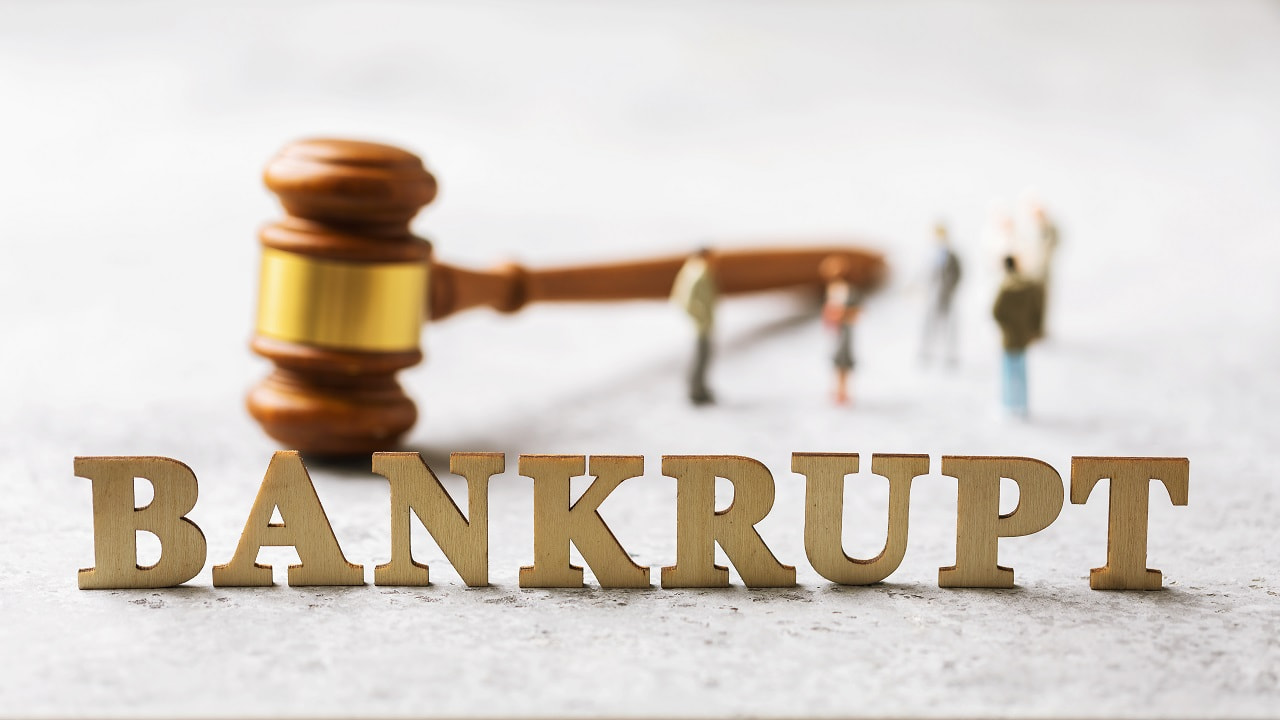Bankruptcy Law in Vietnam and How Bankruptcy Lawyer Can Help With Your Business?


Hiring an experienced bankruptcy lawyer is the initial step toward regaining control of your financial situation.
Facing the possibility of bankruptcy is a challenging situation for any enterprise doing business in Vietnam. Engaging a bankruptcy lawyer in Vietnam and understanding bankruptcy laws early in the process is essential. Doing so ensures that the enterprise is well-informed, protected, and equipped to make the best decisions for its financial well-being and future prospects. Early involvement of a bankruptcy lawyer can help steer the enterprise other stakeholders toward a more successful outcome, whether that involves restructuring, settlement negotiations, or pursuing alternative options.
What Is Bankruptcy under Vietnam Laws?
Bankruptcy is a state of insolvency of an enterprise or cooperative that is declared bankrupt by the People’s Court.
Compared to the previous bankruptcy laws, the current Bankruptcy Law is more open to the subjects who can file for bankruptcy declaration. First, the Bankruptcy Law stipulates that unsecured and partially secured creditors have the right to file a request to open bankruptcy proceedings upon the expiration of the three-month period from the date the debt is due.
In addition, employees and trade unions also have the right to file a petition to open bankruptcy proceedings after the expiration of 03 months from the date of payment of salary obligations, but enterprises do not pay.
In terms of the court’s jurisdiction to settle bankruptcy, the current Bankruptcy Law absorbed the spirit of the previous Bankruptcy Law, but improved.
It stipulates that the district-level People’s Courts have the authority to settle bankruptcy for enterprises and cooperatives whose head office is located in the district, town or city of that province while under the old law, the district court was only able to resolve bankruptcy for cooperatives.
Provincial-level People’s Courts are competent to settle bankruptcy for enterprises and cooperatives that have registered their business in that province and bankruptcy cases with overseas assets or participants in bankruptcy proceedings abroad; insolvent enterprises and cooperatives have branches and representative offices in many districts of different provinces; the bankruptcy case falls under the jurisdiction of the district court but the provincial court takes it up for settlement.
In addition, the current Bankruptcy Law has some new provisions. For example, transactions of insolvent enterprises and cooperatives made in the 06 months before the date of the court’s decision to open bankruptcy proceedings if it is a transaction related to the transfer of assets not at market price; convert unsecured debts into secured debts or partially secured by assets of enterprises or cooperatives; donation of property; transactions other than the purpose of business activities of enterprises and cooperatives; other transactions aimed at dispersing assets of enterprises, cooperatives, etc., shall be considered invalid.
The bankruptcy procedure of a credit institution is first regulated in the current Bankruptcy Law. In which the law requires the credit institution to be obliged to file a petition for opening bankruptcy proceedings; in case a credit institution fails to file a request for initiation of bankruptcy proceedings, the State Bank of Vietnam shall file a request for initiation of bankruptcy proceedings against such credit institution.
In addition, the current Bankruptcy Law also adds a negotiation option between the parties before the court accepts the creditor’s petition. Accordingly, within 03 working days from the date the People’s Court receives a valid application for initiation of bankruptcy proceedings, the insolvent enterprise or cooperative and the creditor filing the request for initiation of bankruptcy proceedings shall have the right to request in writing to the People’s Court for the parties to negotiate the withdrawal of the application.
The People’s Court shall set a time for negotiation but not exceeding 20 days from the date of receipt of a valid petition for initiation of bankruptcy proceedings. If the parties can reach agreement on the withdrawal of the petition for initiation of bankruptcy proceedings, the People’s Court shall return the petition for initiation of bankruptcy proceedings. In case the negotiation fails or the negotiation time limit expires, but the parties do not conduct the negotiation, the People’s Court shall notify the applicant to pay the bankruptcy fee, advance the bankruptcy cost and accept the application for opening the bankruptcy procedure. products according to regulations.
How A Bankruptcy Lawyer in Vietnam Can Help?
A bankruptcy lawyer in Vietnam plays a crucial role in assisting stakeholders involved in a bankruptcy case. Bankruptcy proceedings can be complex and challenging, and a skilled bankruptcy lawyer in Vietnam specializing in bankruptcy law can provide valuable legal guidance and representation to various stakeholders.
Here’s how a bankruptcy lawyer in Vietnam can help different parties involved in a bankruptcy case:
For Debtors:
-Legal Counsel: A bankruptcy lawyer can provide debtors with legal advice on their rights, responsibilities, and available options. They can help debtors understand the implications of bankruptcy, including potential discharge of debts and the impact on their assets.
Debt Relief: Bankruptcy lawyer in Vietnam can assist debtors in filing for bankruptcy, depending on the applicable bankruptcy laws. They guide debtors through the process of submitting necessary documents and meeting requirements to seek debt relief.
Protection from Creditors: Bankruptcy lawyer in Vietnam can help debtors navigate automatic stay provisions, which temporarily halt collection actions by creditors. This gives debtors some breathing room to reorganize their finances and develop a repayment plan.
For Creditors:
-Claim Evaluation: Bankruptcy lawyer in Vietnam assists creditors in evaluating their claims against the debtor. They can determine whether the debt is dischargeable or non-dischargeable and whether any collateral secures the debt.
– Representation in Proceedings: Bankruptcy lawyer in Vietnam can represent creditors’ interests in bankruptcy proceedings, including attending creditor meetings, negotiating with debtors, and objecting to discharge if appropriate.
– Protection of Rights: Bankruptcy lawyer in Vietnam helps creditors understand their rights under bankruptcy law and ensure they are treated fairly during the bankruptcy process. They can also assist in asserting preferences or fraudulent transfers claims if applicable.
For Employees:
– Wage Claims: Bankruptcy lawyer in Vietnam can assist employees in pursuing wage claims if the employer has filed for bankruptcy. This ensures that employees receive the wages and benefits they are entitled to.
– Job Security: Employees can consult bankruptcy lawyer in Vietnam to understand their job security during bankruptcy proceedings. Lawyers can provide insights into how the bankruptcy may affect employment contracts and agreements.
For Shareholders and Equity Holders:
– Rights Evaluation: Bankruptcy lawyers can assess the rights of shareholders and equity holders in the context of bankruptcy proceedings. They can explain how bankruptcy might impact ownership interests and potential recovery.
– Representation: If there’s an opportunity for shareholders to recover any value from the bankruptcy estate, bankruptcy lawyer in Vietnam can represent their interests in negotiations and court proceedings.
For Investors and Lenders:
– Asset Recovery: Bankruptcy lawyer in Vietnam can assist investors and lenders in recovering their investments or loans if they are secured by assets of the debtor. They can navigate the priority of claims and help optimize recovery strategies.
– Negotiations: Bankruptcy lawyer in Vietnam can negotiate on behalf of investors and lenders with the debtor or other stakeholders to secure the best possible outcome for their financial interests.
Overall, a bankruptcy lawyer in Vietnam can provide tailored legal solutions and guidance to stakeholders involved in a bankruptcy case. Their expertise in bankruptcy law, negotiation skills, and advocacy can significantly impact the outcomes of bankruptcy proceedings for all parties involved.
About ANT Lawyers, a law firm in Vietnam
We help clients overcome cultural barriers and achieve their strategic and financial outcomes, while ensuring the best interest rate protection, risk mitigation and regulatory compliance. ANT lawyers has lawyers in Ho Chi Minh city, Hanoi, and Danang, and will help customers in doing business in Vietnam.


New Vietnam Law on Bankruptcy No.51/2014/QH13


Insolvency Situation and Bankruptcy Matters: How Insolvency Lawyers in Vietnam Could Help?


What do Corporate Restructuring Lawyers do?
What is the Connection between Competition Law and International Trade Agreements?
From Compliance to Excellence – Corporate Governance Lawyers in Vietnam
Guide to Liquidating a Business in Vietnam
How ANT Lawyers Could Help Your Business?
You could learn more about ANT Lawyers International Trade and Tax Practice or contact our International trade dispute lawyers in Vietnam for advice via email ant@antlawyers.vn or call our office at (+84) 24 730 86 529
Recent Posts
7 Essential Truths to Open an Indirect Investment Account in Vietnam and Grow with Confidence
Do you want to invest overseas into Vietnam? Do you want to open an indirect…
5 Crucial Facts About ESG Laws in Vietnam That Could Save Your Business and Reputation
The Business World Is Changing Fast Rules are shifting. Expectations are rising. Eyes are watching. …
7 Powerful Reasons Why ESG Compliance in Vietnam Will Win You Trust, Growth, and Global Clients
Trust matters. Today, more than ever. Across industries, many companies are now being asked. directly…
7 Bold Reasons Why Tokenization in Vietnam Could Transform Your Future
Change is coming. Quietly. Digitally. Rapidly. Let’s imagine the situation, which assets are no longer…
Vietnam P2P Lending: 5 Bold Reasons Why Decree 94/2025 Could Empower Millions or Backfire?
A New Financial Chapter Begins in Vietnam One person lends. Another borrows. It’s that simple.…
5 Essential Lessons from Risk Management in Digital Assets in Vietnam: Protecting Trust in a Digital World
Trust Is the Real Currency Money can be lost. Tokens can vanish. Platforms can crash.…



